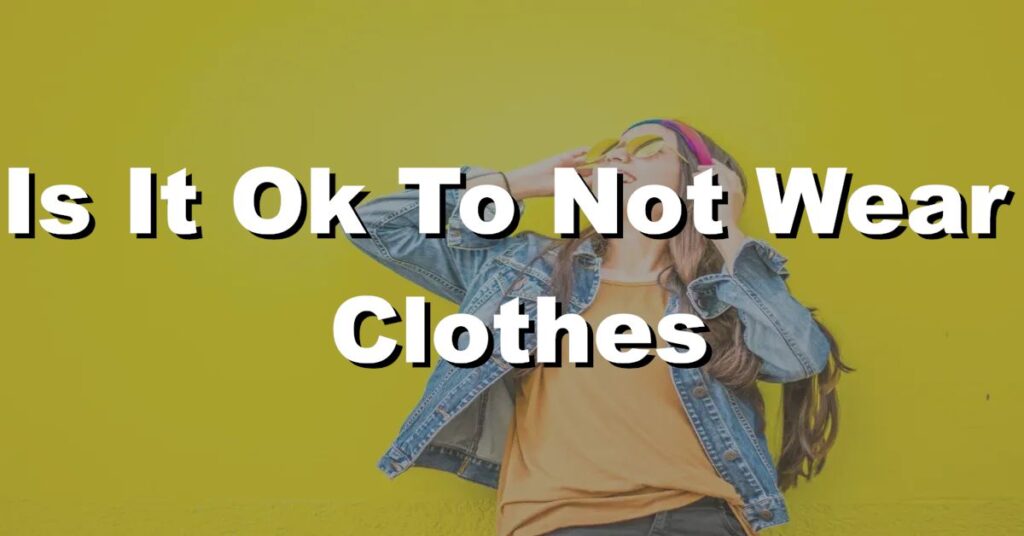It’s a common joke to say clothes are optional, but is it really okay to not wear clothes?
In this blog post, we’ll discuss the legal and societal implications of public nudity, and the arguments for and against wearing clothes in different settings.
The Pros and Cons of a Clothing-Optional Lifestyle
A clothing-optional lifestyle offers both advantages and disadvantages. One of the main benefits is the freedom to express oneself and embrace body positivity.
Being able to choose whether or not to wear clothes can promote a sense of liberation and acceptance of one’s natural form. It can also foster a stronger connection with nature and a sense of unity with others in clothing-optional communities.
However, there are also potential drawbacks to consider. Privacy concerns may arise when engaging in a clothing-optional lifestyle, as it may not be suitable or comfortable in all settings or for everyone. Nudity in public spaces can also raise legal and social issues, which vary across different jurisdictions and cultures.
Additionally, some individuals may feel uncomfortable or vulnerable without clothing, and the lack of protection from external elements can be a challenge in certain environments.
The History and Cultural Significance of Public Nudity Around the World
Public nudity has been a part of human history and culture in various forms. In some ancient civilizations, public nudity was seen as a symbol of purity, freedom, or spiritual expression. Indigenous cultures around the world have practiced communal nudity as a means of social bonding and connection with nature.
However, the perception of public nudity has evolved over time and differs greatly across different societies due to cultural, religious, and social norms.
The Psychological and Physiological Benefits of Sleeping Naked
Sleeping naked can offer several psychological and physiological benefits. From a psychological standpoint, sleeping without clothing can promote body confidence and self-acceptance, leading to improved self-esteem. It can also enhance intimacy and connection with a partner.
Physiologically, sleeping naked allows the body to regulate its temperature more effectively, preventing overheating and promoting better sleep quality. It can also reduce the risk of certain skin conditions and improve overall skin health.
How To Stay Comfortable When Not Wearing Clothes at Home
To stay comfortable when not wearing clothes at home, it’s important to consider personal preferences and the climate of the environment. Ensure that the temperature is appropriate and adjust it as needed. Choose comfortable and breathable fabrics for furniture and bedding to prevent discomfort or irritation.
Maintain good personal hygiene to promote cleanliness and freshness. Additionally, creating a private and safe space within the home can help individuals feel more at ease when choosing a clothing-optional lifestyle.
The Legal and Social Aspects of Public Nudity in Different Countries
The legal and social aspects of public nudity vary significantly from one country to another. Some countries have more relaxed attitudes towards public nudity, with designated clothing-optional beaches or areas where it is permitted. In contrast, many countries have laws that prohibit or regulate public nudity to maintain societal standards and protect public decency.
It’s crucial to research and understand the local laws and cultural norms regarding public nudity when traveling or considering a clothing-optional lifestyle in different countries.
Conclusion
In conclusion, while there may be situations where not wearing clothes is acceptable, such as in private spaces like your home or certain naturist communities, it is generally not considered socially acceptable to be nude in public.
It is important to adhere to cultural and social norms and dress codes in public spaces.

